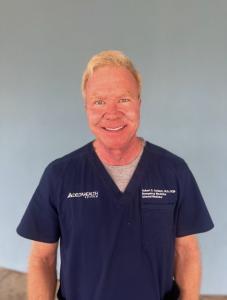What Sets Emergency Medicine Apart from Internal Medicine? Dr. Robert Corkern Explains
What Sets Emergency Medicine Apart from Internal Medicine? Dr. Robert Corkern Explains
Blog Article

As it pertains to healthcare, lots of people frequently confuse emergency medication with internal medicine. Both are crucial divisions of medication, however they serve very different functions in patient care. Dr Robert Corkern Mississippi, a distinguished medical expert, describes the main element differences between both of these specialties, shedding mild on their particular stresses and how each contributes to individual health. Understanding the variance between disaster medicine and central medicine might help people greater navigate their healthcare wants and make informed decisions.
The Focus of Emergency Medication
Emergency medicine was created to offer immediate, intense look after patients facing urgent or life-threatening conditions. Disaster physicians function in hospitals' crisis divisions (EDs), wherever they are the first position of contact for persons experiencing severe injuries, shots, center problems, or other medical emergencies. Dr. Corkern highlights that emergency medication is focused on stabilization and rapid decision-making. Disaster physicians are experienced to handle a wide range of medical situations, frequently without having reveal medical history of the patient, and should make fast judgments based on confined information.
The principal purpose of emergency medication is to avoid further harm, support the in-patient, and start the right interventions. From stress treatment to managing heart problems or strokes, disaster physicians are authorities in controlling acute indicators and providing life-saving remedies in high-pressure environments.
The Position of Internal Medicine
On the other hand, internal medicine centers around detecting and handling chronic conditions and conditions that influence adults, such as for example diabetes, hypertension, and heart disease. Inner medication specialists, or internists, use individuals over a long time, giving comprehensive care and elimination strategies. Dr. Corkern explains that central medicine is mainly focused on the whole-body management of non-emergency medical issues. Internists usually serve as principal care medical practioners, managing routine check-ups, managing continuing solutions, and managing look after individuals with complicated, long-term health issues.
While emergency physicians address immediate considerations, internists take a more holistic and long-term method of individual health. They usually function carefully with specialists in places like cardiology, pulmonology, and nephrology to manage chronic situations and make sure that individuals receive coordinated care for multiple wellness concerns.
Training and Approach to Attention
Dr. Corkern features the differences in the training needed for both fields. Disaster medicine requires physicians to be equipped for a broad spectral range of problems that may involve rapid, life-saving interventions. Disaster health practitioners are qualified to handle trauma, important disease, and acute exacerbations of persistent conditions. That education involves huge focus on intense treatment and advanced life-saving procedures, usually in high-stress environments.
On the other give, central medicine physicians undergo intensive training in the avoidance, analysis, and treatment of serious conditions. They focus on providing long-term care, usually handling a patient's medical record and coordinating with different specialists. The internist's strategy is patient-centered, with an increased exposure of long-term wellness maintenance and condition prevention.
When to Seek Disaster Medicine or Inner Medicine
Understanding when to seek emergency medication versus internal medication could make all of the difference in the pace and type of attention someone receives. If you're encountering a medical emergency, such as for instance severe chest suffering, difficulty breathing, or quick loss of consciousness, the emergency room is the right place to go. However, for continuous health problems, serious condition management, or overall health preservation, an internal medicine consultant is typically the very best stage of contact.
Realization:
Equally disaster medication and central medicine perform crucial roles in individual treatment, but their techniques, focus parts, and education change significantly. Dr Robert Corkern's reason gives clarity how these specialties purpose and when each is most relevant. By knowledge the distinctions, individuals may better understand their healthcare wants and guarantee they're seeking the proper form of care at the best time. Whether experiencing an urgent situation or managing a persistent situation, both specialists are essential in sustaining and increasing health.
Report this page